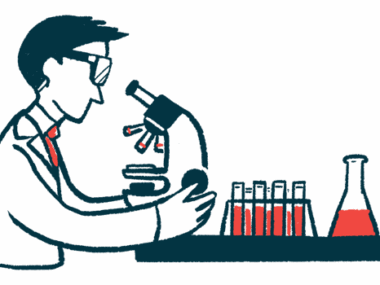Chemical in cigarette smoke drives pancreatic cancer: Study
Treatment targeting affected immune cells may help patients who smoke
Written by |

A chemical in cigarette smoke can increase the odds of developing pancreatic cancer by changing the immune system’s activity.
That’s according to a new study by U.S. researchers that ultimately revealed that this chemical, known as 2,3,7,8-tetrachlorodibenzo-p-dioxin or TCDD for short, decreased levels of cancer-killing immune cells while increasing levels of immune cells that protect tumors.
Based on these findings, the researchers speculated that treatments to target these dysregulated immune cells may help treat pancreatic cancer patients who smoke.
“There’s a potential that we need to treat smokers who develop pancreatic cancer differently,” Timothy L. Frankel, MD, coauthor of the study at the University of Michigan, said in a university news story that detailed the research team’s findings in a mouse model and in human cells.
“We may also need to screen smokers more closely for pancreatic cancer development,” said Frankel, who also serves as the codirector of the Rogel and Blondy Center for Pancreatic Cancer at Michigan Medicine. “There is not a great screening mechanism, but people who smoke should be educated about symptoms to look out for and consider referrals to a high-risk clinic.”
Among the signs of pancreatic cancer are a yellowing of the skin, low back pain, and unexplained weight loss.
The study, “Aryl hydrocarbon receptor ligands drive pancreatic cancer initiation and progression through pro-tumorigenic T cell polarization,” was published in the journal Cancer Discovery.
It’s well-established that people who smoke cigarettes are more likely to develop pancreatic adenocarcinoma (PDAC), the most common form of pancreatic cancer. People with PDAC who smoke have also been shown to have significantly worse clinical outcomes than nonsmokers.
While smoking is a known risk factor for this type of pancreatic cancer, however, it’s not entirely clear why cigarette smoke drives the development and progression of PDAC.
Tumor cells exposed to cigarette smoke chemical TCCD grew faster
To better understand these mechanisms, the research team conducted a series of tests in a mouse model in which PDAC cells were implanted into the pancreas, which plays a crucial role in hormone production and in digestion.
The scientists found that, when the mice were treated with cigarette smoke extract, the tumor cells grew faster and more aggressively. Treating the mice with TCDD, a specific chemical found in cigarette smoke, similarly led to quicker and more aggressive PDAC growth. That suggested this particular chemical was at least partly responsible.
“It dramatically changed the way the tumors behave,” Frankel said. “They grew much bigger, [and] they metastasized throughout the body. It was really quite dramatic.”
TCDD is known to activate a protein called the aryl hydrocarbon receptor (AhR), which is expressed by many different types of cells, including some cancer cells and some immune cells. The researchers speculated that TDCC increased PDAC growth because it activated AhR in certain cells — but it wasn’t clear which cells.
It dramatically changed the way the tumors behave. They grew much bigger, [and] they metastasized throughout the body. It was really quite dramatic.
To find out, the researchers repeated their experiments using mice engineered to lack an immune system. In these mice, TCDD treatment did not affect pancreatic cancer growth.
These data show that the effects of TDCC on pancreatic cancer are mediated by the immune system, rather than being a direct effect of the cigarette chemical on cancer cells, according to the scientists.
Mechanism different from that linking cigarettes to other cancers
This immune-mediated mechanism linking cigarettes and PDAC is notably different from mechanisms that are known to link cigarettes and other cancers, particularly lung cancer. Chemicals in cigarette smoke have been shown to cause mutations in lung cells that directly lead to the cells becoming cancerous.
Through a further series of experiments, the researchers deduced that TDCC increases PDAC development by modulating the activity of immune cells called T-cells.
There are many types of immune cells. CD8 T-cells are a subset of these cells that are able to act as the body’s assassins, killing cells that have become cancerous or infected with a virus. A different subset, called regulatory T-cells or Tregs, acts to reduce the activity of inflammatory cells like CD8 T-cells.
Normally, Tregs limit CD8 T-cell activation to help stop the killer T-cells from attacking the body’s own tissues. But in PDAC and other cancers, Tregs are often commandeered by the tumor to help stop CD8 T-cells from attacking cancer cells.
The researchers found that TDCC interacts with the AhR protein on T-cells, and this leads to an increase in cancer-protecting Tregs and a decrease in cancer-killing CD8 T-cells. In line with these data from animal models, analyses of human samples indicated that AhR activation and Treg levels were increased in cigarette smokers.
“We provide evidence that AhR activation specifically polarizes [T-cells] to a more pro-tumor phenotype, blunting antitumor immunity and releasing deleterious [signaling molecules] which culminate in PDAC initiation and progression,” the researchers wrote.
Next step: Finding therapies to help treat PDAC in smokers
Based on these data, the scientists speculated that therapies to block activation of the AhR protein could help treat PDAC, particularly in smokers. Such therapies could feasibly be combined with other treatments designed to increase the immune system’s ability to fight cancer, which often have limited effectiveness in PDAC.
According to Frankel, “if we are able to inhibit the super suppressive cells, we might also unlock natural anti-tumor immunity.” Frankel noted that “this could be even further activated by current immunotherapies, which do not work well in pancreatic cancer because of the immunosuppressive environment.”
Still, the researchers noted that further study is needed to determine what treatments might block the effects of TCDD and how they could work in patients who smoke cigarettes.





